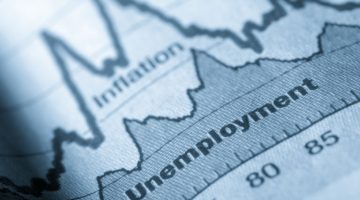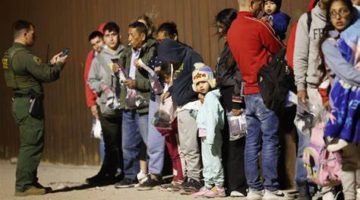 PHNOM PENH, Cambodia (AP) — On a history-making trip, President Barack Obama on Monday paid the first visit by an American leader to Myanmar and Cambodia, two Asian countries with troubled histories, one on the mend and the other still a cause of concern.
PHNOM PENH, Cambodia (AP) — On a history-making trip, President Barack Obama on Monday paid the first visit by an American leader to Myanmar and Cambodia, two Asian countries with troubled histories, one on the mend and the other still a cause of concern.
Obama's fast-paced, pre-Thanksgiving trip vividly illustrated the different paths the regional neighbors are taking to overcome legacies of violence, poverty and repression.
Cheered by massive flag-waving crowds, Oba-ma offered long isolated Myanmar a “hand of friendship” as it rapidly embraces democratic reforms. Hours later, he arrived in Cambodia to little fanfare, then pointedly criticized the country's strongman leader on the issue of human rights during a tense meeting.
Obama was an early champion of Myanmar's sudden transformation to civilian rule following a half-century of military dictatorship. He's rewarded the country, also known as Burma, with eased economic penalties, increased U.S. investment and now a presidential visit, in part to show other nations the benefits of pursuing similar reforms.
“You're taking a journey that has the potential to inspire so many people,” Obama said during a speech at Myanmar's University of Yangon.
The Cambodians are among those Obama is hoping will be motivated. White House officials said he held up Myanmar, a once-pariah state, as a benchmark during his private meeting Monday evening with Prime Minister Hun Sen, the autocratic Cambodian leader who has held power for nearly 30 years. Hun Sen's rivals have sometimes ended up in jail or in exile.
Unlike the arrangement after Obama's meetings with Myanmar's President Thein Sein and democracy leader Aung San Suu Kyi, the U.S. and Cambodian leaders did not speak to the press following their one-on-one talks. They did step before cameras briefly before their meeting to greet each other with a brisk handshake and little warmth.
In private, U.S. officials said, Obama pressed Hun Sen to release political prisoners, stop land seizures and hold free and fair elections. Aides acknowledged the meeting was tense, with the Cambodian leader defending his practices, even as he professed to seek a deeper relationship with the U.S.
Ben Rhodes, Obama's deputy national security adviser, said the president told Hun Sen that, without reforms, Cambodia's human rights woes would continue to be “an impediment” to that effort.
White House officials emphasized that Obama would not have visited Cambodia had it not been hosting two regional summit meetings the U.S. attends, a rare admonition of a country on its own soil.
The Cambodian people appeared to answer Obama's cold shoulder in kind. Just a few small clusters of curious Cambodians gathered on the streets to watch his motorcade speed though the streets of Phnom Penh.
Winding down his trip, Obama talked on the sidelines of the East Asia Summit with Japanese Prime Minister Yoshihiko Noda. Briefly addressing reporters before the private meeting began, Obama called the relationship between the U.S. and Japan a “cornerstone of prosperity and security in the region.” The two leaders discussed jobs, trade and the economy.
Obama also carved out time for Chinese Premier Wen Jiabao in what was likely the president's last meeting with the outgoing Chinese leadership. At the top of the meeting, Obama called the relationship between the U.S. and China “cooperative and constructive” and said it was important that the two countries have “clear rules of the road internationally for trade and investment.”
“You and I share the view that the U.S.-China relationship is one of the most important bilateral relationships in the world,” Wen added, even as he acknowledged differences on issues.
Obama's talks with Noda and with Wen were likely to be his last bilateral meetings with both men.
Noda dissolved his country's parliament last week, setting the stage for new elections his party is unlikely to win. And China is undergoing its first leadership transition in a decade, with Wen and President Hu Jintao stepping down to clear the way for new leaders in the country's Communist Party.
Obama has added the Asia summit to his annual list of high-priority international meetings as he seeks to expand U.S. influence in the region.
A welcome sign did greet Obama upon his arrival — but it heralded Wen, not the American president.
Human rights groups fear that because Obama delivered his condemnation of Hun Sen in private, government censors will keep his words from reaching the Cambodian people. And they worry the prime minister will then use Obama's visit to justify his grip on power and weaken the will of opposition groups.
Obama's visit to Myanmar was also viewed critically by some international organizations which saw the trip as a premature reward for a country that still holds political prisoners and has been unable to contain ethic violence.
Aware of that criticism, Obama tempered some of his praise for Myanmar during his six-hour visit. He underscored that the reforms that have taken hold over the past year are “just the first steps on what will be a long journey.”
Perhaps the sharpest calls for caution came from Suu Kyi, Myanmar's longtime democracy champion. After meeting with Obama at the home where she spent years under house arrest, she warned that the most difficult part of the transition will be “when we think that success is in sight.”
"Then we have to be very careful that we're not lured by the mirage of success,” Suu Kyi said, speaking with Obama by her side.
Obama was due to return to Washington before dawn Wednesday, in time for the ceremonial pardoning of the Thanksgiving turkey.












No Comment